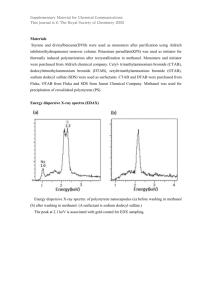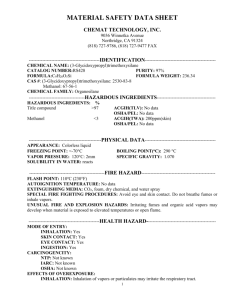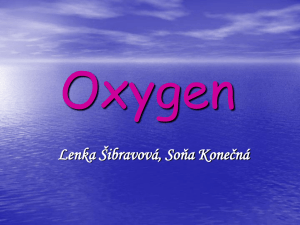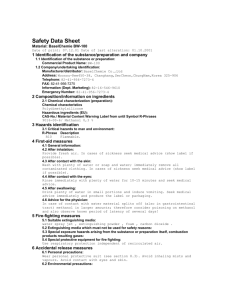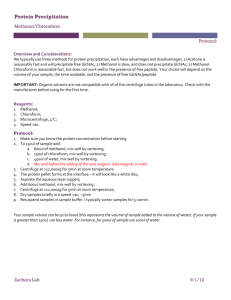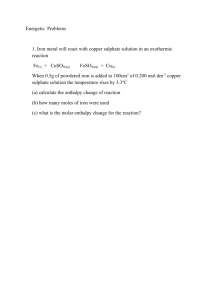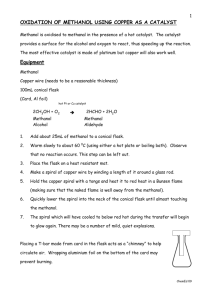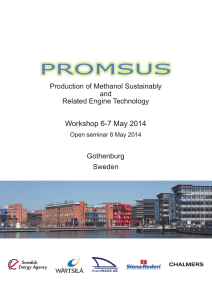Methanol as fuel & energy storage
advertisement
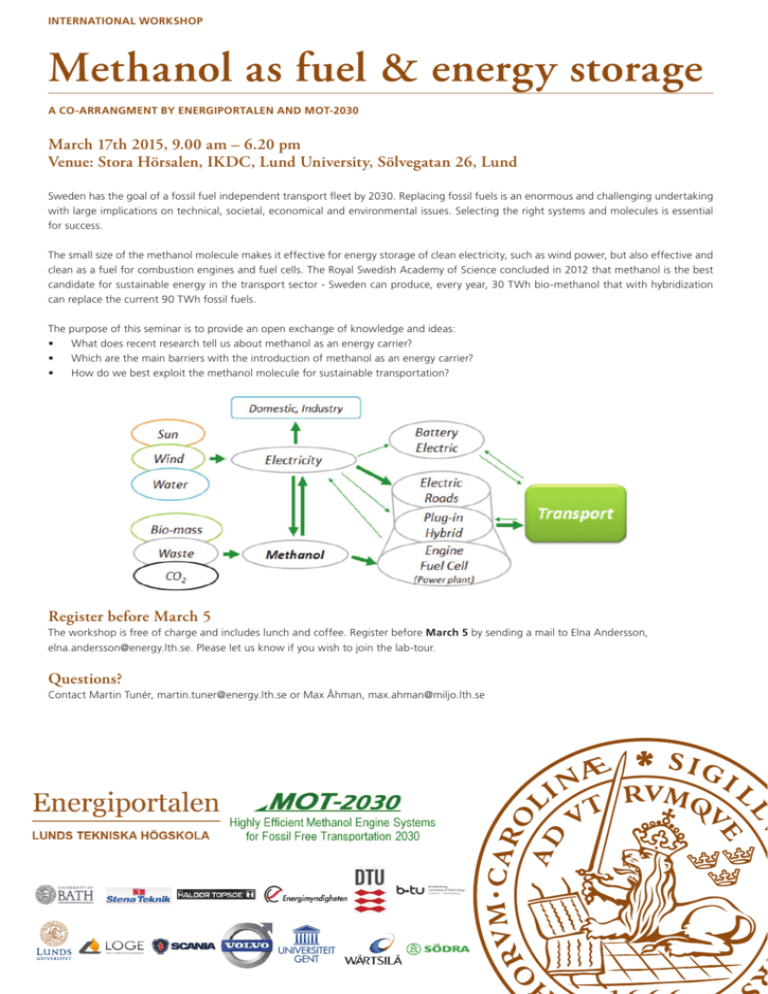
INTERNATIONAL WORKSHOP Methanol as fuel & energy storage A CO-ARRANGMENT BY ENERGIPORTALEN AND MOT-2030 March 17th 2015, 9.00 am – 6.20 pm Venue: Stora Hörsalen, IKDC, Lund University, Sölvegatan 26, Lund Sweden has the goal of a fossil fuel independent transport fleet by 2030. Replacing fossil fuels is an enormous and challenging undertaking with large implications on technical, societal, economical and environmental issues. Selecting the right systems and molecules is essential for success. The small size of the methanol molecule makes it effective for energy storage of clean electricity, such as wind power, but also effective and clean as a fuel for combustion engines and fuel cells. The Royal Swedish Academy of Science concluded in 2012 that methanol is the best candidate for sustainable energy in the transport sector - Sweden can produce, every year, 30 TWh bio-methanol that with hybridization can replace the current 90 TWh fossil fuels. The purpose of this seminar is to provide an open exchange of knowledge and ideas: • What does recent research tell us about methanol as an energy carrier? • Which are the main barriers with the introduction of methanol as an energy carrier? • How do we best exploit the methanol molecule for sustainable transportation? Register before March 5 The workshop is free of charge and includes lunch and coffee. Register before March 5 by sending a mail to Elna Andersson, elna.andersson@energy.lth.se. Please let us know if you wish to join the lab-tour. Questions? Contact Martin Tunér, martin.tuner@energy.lth.se or Max Åhman, max.ahman@miljo.lth.se Programme 9.00 Opening Opening talk Welcome – Introduction Martin Tunér, Lund University 9.20 Prospects of Methanol as fuel & energy storage Fossil Free Fleet in Sweden 2030 – reflections and priorities from a government investigation Thomas B Johansson, Lund University Methanol production technologies: todays and future renewable solution John Bogild Hansen, Haldor Topsoe 10.15-10.30 Coffee break – networking Policies and funding of alternative fuels Gustav Tibblin, Södra Methanol production from biomass and intermittent power Søren Højgaard Jensen, DTU Energy Factors that determine climate benefits for methanol from a well to wheel perspective Pål Börjesson, Lund University 11.35 Methanol – Safety, health and environment Methanol as ship fuel – handling of safety matters Ulf Freudendahl, MARU Teknik AB Methanol as a fuel - exposure and possible Health risks Håkan Tinnerberg, Lund University 12.25 Lunch 13.25 Methanol as an engine fuel – experiences, experiments and modeling Experimental and numerical work at Ghent University on methanol combustion in SI engines Sebastian Verhelst, Ghent University The potential of methanol as a blend component to enable the evolution of decarbonized liquid fuels James Turner, University of Bath ED95 experiences and MD95 plans Per Stålhammar, Scania CV AB Methanol - the fuel of the future Lennart Haraldsson, Wärstsilä AB 15.25 -15.55 Coffee break – networking Aspects of alcohol modeling in combustion engines Fabian Mauss, BTU Cottbus, Loge AB Optical methods for combustion research Mattias Richter, Lund University 16.55 Open discussion 17.25 – 18.20 Lab tour
